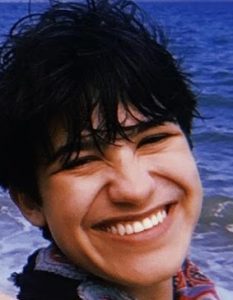 I have always loved reading. The books I read growing up have had a profound influence on how I now view the world. But these books failed me, and many other adolescents, in one crucial way: they were written from the same Western, hetero-normative perspective. In a world as wonderfully diverse as ours, it seems tragic that it took me until high school to find stories that spoke beyond this limited view. Through the individualized Major program, I created a major entitled “Young Adult Fiction: Identity and Diversity” to address this issue. I intend to write and promote books that fill the gap in young adult (YA) literature. This past summer I took one of my first steps toward this goal and wrote my own YA post-apocalypse novel.
I have always loved reading. The books I read growing up have had a profound influence on how I now view the world. But these books failed me, and many other adolescents, in one crucial way: they were written from the same Western, hetero-normative perspective. In a world as wonderfully diverse as ours, it seems tragic that it took me until high school to find stories that spoke beyond this limited view. Through the individualized Major program, I created a major entitled “Young Adult Fiction: Identity and Diversity” to address this issue. I intend to write and promote books that fill the gap in young adult (YA) literature. This past summer I took one of my first steps toward this goal and wrote my own YA post-apocalypse novel.
I was able to accomplish this with the help of the IDEA Grant program, which funds a range of student designed projects. I chose to focus on post-apocalyptic literature because we are experiencing a flood of stories with this theme, and there is a pattern emerging that I find troubling. First, there is an extreme lack of diversity. The “sole survivors” tend to be from Western culture, which implies that all other cultures are simply gone. Second, they often reestablish society based on traditional values, which reinforce stereotypical gender roles and heterosexual relationships. Rarely do these books address the complexity of individual identities. I set out to write a book that would address these issues. It’s still firmly a YA novel, despite the complex ideas I incorporated. My goal was to introduce readers to new perspectives and start discussions of relevant problems they can see in the real world.
I learned a lot in those two summer months, writing 80,000 words (roughly 320 pages) and reading post-apocalyptic stories with non-Western world views. It was a lot of work, but also a lot of fun, and I now have a deeper understanding of the difficulties authors face in incorporating such complex themes into something written primarily for entertainment. On the other hand, I also know that it is possible, and that it’s difficulty can’t be an excuse to keep the status quo.
I look forward to continuing my major and my book, which I plan to publish around the same time I graduate. I’m excited to see what other learning opportunities come my way in the two years I have left at the University of Connecticut. Above all, I am thankful for all the help, guidance, and support I received on this project. I wouldn’t have been able to do it without you all.
By Amelia Bowman
IMJR: Young Adult Fiction: Identity and Diversity